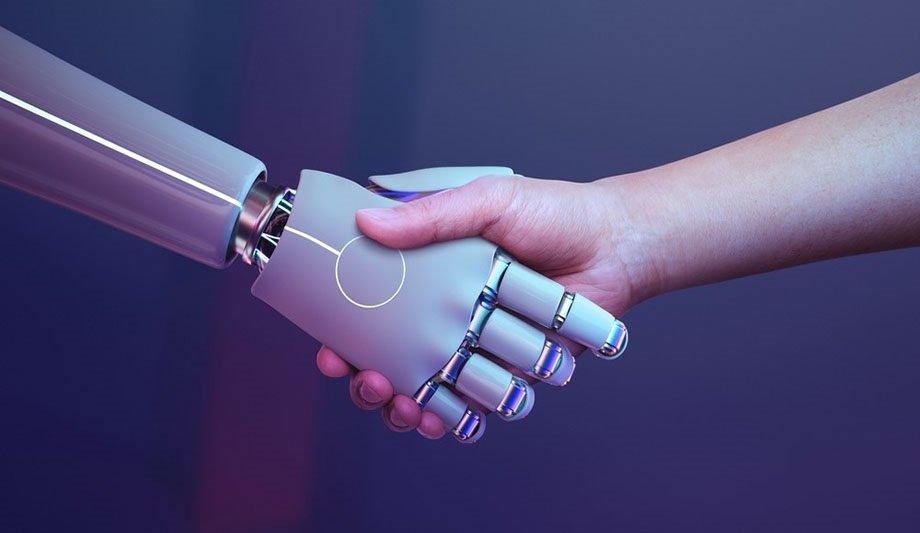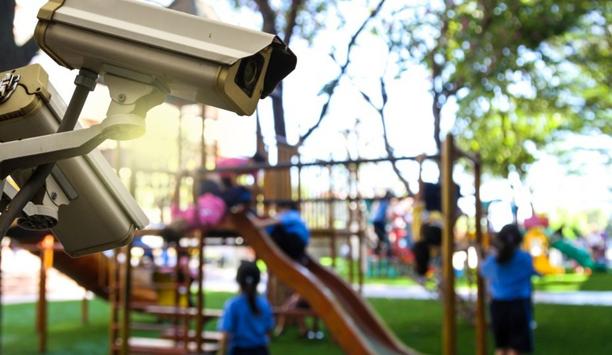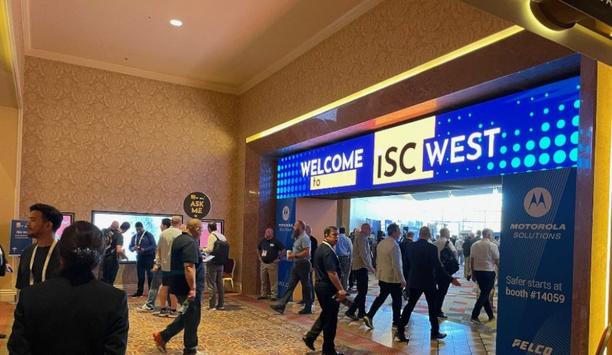What Factors Had The Biggest Impact On Security In 2023?
Editor Introduction
With the new year well underway, 2023 seems almost like a distant memory. However, a bit of distance might be just the thing to enable us to examine the impact of the year 2023 on the physical security marketplace. We asked this week’s Expert Panel Roundtable: What factors had the biggest impact on the security marketplace in 2023?
2023 started with lingering supply chain issues for some manufacturers even though others were immune. As business picked up during the year, it was clear that cybersecurity remained a hot topic and NDAA shifted purchasing requirements for some organizations. Government mandates about Zero Trust architecture by 2024 and executive orders on AI continued to highlight security as well as privacy protection as important topics. At the same time, the public evolution of large language model AI chatbots such as ChatGPT put AI at the top of the public’s mind in both good and bad ways. As AI adoption in the security marketplace was gaining traction, negative press threatened to dampen those gains. For now, the biggest impact has been a necessary global education about AI pros/cons, and a conversation about ethical AI use, which currently feels like a net positive for our industry.
2023 was indeed the year of AI in the security industry. The sector saw a significant shift due to the growing trust and application of AI in practical, real-world scenarios. The recognition and implementation of AI's capabilities, particularly in enhancing security operations, became more widespread. The industry was also abuzz with the potential of generative AI, anticipating its role in introducing unique use cases and transforming risk management. At the same time, there was a notable rise in AI-enabled video surveillance. Powered by advancements in analytics, this led to the expansion of remote and proactive video monitoring systems. These systems offered enhanced intelligence, featuring capabilities like real-time threat detection, behavior analysis, and actionable analytics.
In 2023, the security marketplace underwent a significant transformation primarily driven by the challenges of the Digital Age. The escalating volume of data generated by systems and devices emerged as a critical factor influencing security dynamics. The sheer magnitude of information threatened decision-making processes, potentially leading to paralysis or oversight of crucial events. To address this, the security industry experienced a surge in the adoption of advanced analytics and AI. Implementing these technologies allowed for the efficient categorization of alerts, the integration of multi-layered security measures, and the establishment of a culture emphasizing continuous adaptability.
Supply chain constraints dominated the first half of the year, creating a backlog of projects. This cleared towards the second half of the year, amplifying labor challenges. With the backlog of supply and equipment becoming available at similar times, the need to manage many projects and find labor to install became a challenge. Finding skilled installers continues to be a challenge. Additionally, the movement to cloud-based systems continued to gain traction in 2023.
Based on insights from over 5,500 physical security leaders worldwide, the latest Genetec State of Physical Security report shows that the adoption of cloud-based solutions for physical security picked up speed in 2023 with 44% of end users reporting that more than 25% of their physical security setups are now either in the cloud or use a hybrid combination of cloud and on-premises solutions. Likewise, while there's growing confidence in the cybersecurity measures of cloud solutions, cyber threats are an increasing concern. 42% of organizations increased deployments of cybersecurity-related tools in their physical security environments in 2023, up from only 29% in 2022. These cybersecurity issues were prioritized in the responses of IT professionals, highlighting the increasing collaboration between IT and physical security teams.
As with almost every industry – from finance to advertising to education - Artificial Intelligence impacted the security marketplace in 2023. Embedded in hardware and systems, available on cloud platforms and on-prem deployments, AI is becoming ubiquitous in the security industry, helping to identify suspicious behavior, increasing object detection accuracy, and decreasing forensic search time. Another impact in 2023 was mergers and acquisitions. Motorola Solutions has been the most active in acquisitions, but unlike GE Security 20 years ago, they have a strategic focus on one vertical market, rather than gobbling up everything to sell to everyone. Also, the recent consolidation of the access control vendors will continue to have an impact well beyond 2023. Finally, the continuing transition to the cloud impacted the marketplace in 2023 and the trend of moving as much security infrastructure to the cloud as possible will only accelerate.
From where I sit in talking to prospects and hearing about the challenges they face, several factors have had a huge impact on security pioneers' ability to do their jobs better. First, AI for automation around reducing repetitive tasks, correcting noise from hardware, and improving monitoring for tailgating, safety, and threat alerts. Second, limited budgets have forced security pioneers to sell the benefits of security to the business's bottom line and we have been working with them to find inefficient spending and reallocate resources. Third, large institutions saw firsthand the effects of bad data hygiene and the risks of ignoring missed alerts that resulted in loss. Fourth, mobile-first access control systems provide more convenience for users (and organizations). And finally, consider social unrest’s impact on enterprise risk (and the effect demonstrations have on employees and customers). Taken together, security pioneers have both an uphill battle and myriad opportunities to make security data the centerpiece of the organization.
In the consistently evolving security landscape, two significant factors played a pivotal role in shaping the marketplace. The first major driver was the widespread interest in AI. But despite the rapidly growing interest in AI technologies, caution prevailed among many customers who were uncertain about the future implications of AI, especially generative AI. At the same time, new government regulations were introduced, including the first Executive Order in October, which defined principles for how federal agencies can utilize and develop AI. Finally, demands for VMS are continuing to change; customers are seeking solutions that are future-proof, easily integrated with other devices, and AI-driven. The overarching goal is to help users find a solution to today's challenging security problems so that they can truly be more intelligent in their approach.
In 2023, the security industry saw significant changes, marking a new era of technological growth. There was a notable increase in demand for cloud video systems, attributed to their ability to scale and the growing trust in cloud technology among end users. This rise in cloud deployments also shifted the focus towards cybersecurity, making it essential for providers to comply with IT security standards and guidelines such as SOC 2, and Type 2. The industry also prioritized the ongoing challenge of overcoming bandwidth and storage limitations. This led to the increased use of edge computing and the development of more sophisticated compression techniques. This past year we saw a renewed interest in AI applications to support common physical security use cases and the higher adoption could be attributed to more real-world use cases that are now proven in the industry. However, it's crucial for the industry to thoroughly assess the potential and the limitations of AI, and to determine its practical applications in real-world scenarios.
Looking back, it's clear that the increasing power of artificial intelligence (AI) solutions had a significant impact on industries across the globe, including the security space. AI (and how to use it) has been hotly debated in the public space, but for the security industry the focus has really been on expanding use cases and working with integrators and customers to educate them on the practical uses for AI. As AI-powered devices become more powerful, they are gathering more data for businesses to use for a wide range of purposes. We are certainly seeing an uptick in organizations utilizing their security cameras to further business goals – outside of just for security purposes – as they generate an enormous amount of invaluable data that is analyzed to improve overall operations. We are already seeing it in the depth and breadth of business intelligence use cases in retail, critical infrastructure, manufacturing – the list goes on.
Acquisitions and mergers in the physical security space are changing the types of security services on offer. For owners of security integration companies, there are now more opportunities for lucrative exits in certain business scenarios. In particular, the opportunity lies in an ability to offer a recurring service that customers find valuable on a recurring, monthly basis. Different possibilities include extended equipment warranty plans, proactive maintenance, and remote video monitoring. These are made possible by new developments in software and artificial intelligence that enable offering those services at high enough margins.
From a macroeconomic perspective, inflation rates were higher than normal, forcing buyers to reconsider their budgets and adjust spending. This also made technological advancements in cloud and analytics more appealing and drove more mainstream use of these technologies because of their cost effectiveness. The tightening of the financial markets in 2023 also made it much more difficult for startups and other organizations seeking capital to access these funds, and this could potentially impact the rate of technological advancement we will see in the near term.
Editor Summary
Artificial intelligence is at the top of the list of factors that will have an impact on the security industry in 2023. However, our Expert Panelists also suggested other factors, including supply chain challenges, government mandates, labor shortages, cloud-based systems, cyber threats, and industry consolidation. These factors and many more will continue to impact the security marketplace as 2024 progresses. Stay tuned.
- Related links
- ANPR Software Video Surveillance software
- Control Software Video Surveillance software
- Drawing Software Video Surveillance software
- IP Surveillance Software Video Surveillance software
- Management Software Video Surveillance software
- Monitoring Software Video Surveillance software
- Surveillance Software Video Surveillance software
- Axis Communications Video Surveillance software
- Axis Communications Digital video recorders (DVRs)
- Genetec Video Surveillance software
- Salient Systems Video Surveillance software
- Axis Communications Network Video Recorders (NVRs)
- Genetec Network Video Recorders (NVRs)
- Salient Systems Network Video Recorders (NVRs)
- Axis Communications Video signal devices & accessories
Expert commentary
Security beat
Security bytes
- Getting To Know Dan Grimm, VP And General Manager Of Computer Vision At RealNetworks
- Big Wins And The Importance Of Showing Up: Insights From SecurityInformed.com Editor Larry Anderson
- Setting Goals, Business Travels And Radioactivity: Success Secrets From Tiandy's John Van Den Elzen
- Getting To Know Jeff Burgess, President/CEO At BCDVideo
Multi-Residential Access Management And Security
DownloadGuide For HAAS: New Choice Of SMB Security System
DownloadPrecision And Intelligence: LiDAR's Role In Modern Security Ecosystems
DownloadHikvision: Solar Powered Product Introduction + HCP
DownloadFacial Recognition
DownloadVerkada TD52 Cloud-Based Video Intercom
Climax Technology TouchPanel-3 7” Color Graphic Touchscreen Panel
Eagle Eye Networks 911 Camera Sharing Gives Instant Access To Security Cameras




























